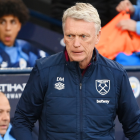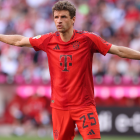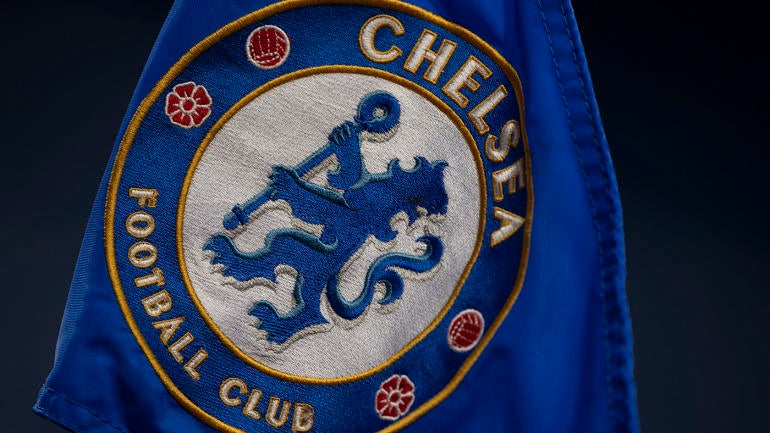
Four known groups of bidders, all with American links, must table their final offers to buy Chelsea on Thursday. Each consortium held meetings with senior club executives in London last week and have hastily completed due diligence.
American merchant bank Raine Group are hoping to broker a $4.5 billion sale, but that target price is considered a little high, with sources telling CBS Sports the price will be closer to $4.2 billion.
Todd Boehly (Los Angeles Dodgers minority owner), the Rickets family (owners of the Chicago Cubs), Stephen Pagliuca (Atalanta co-chairman and Boston Celtics co-owner) and Josh Harris and David Blitzer (Philadelphia 76ers owners) are all vying to replace Roman Abramovich, who was forced to sell Chelsea following U.K. sanctions against him shortly after Russia's invasion of Ukraine.
The sale of Chelsea is being carried out at a hyper-speed pace, with both the Raine Group and the club intent on getting it done by the end of April. Hundreds of interested parties were whittled down to less than 10 serious bids, four of which made the final shortlist.
Once final offers have been tabled, a preferred bidder will be picked, potentially (albeit optimistically) as early as April 18. At that point, the chosen suitor could request a period of exclusivity in order to complete the sale, although the Raine Group has stressed the importance of questions and due diligence being done before Thursday's deadline.
Chelsea have also asked the Premier League to begin clearance of all four known bidders -- an unusual process given the Owners' and Directors' Test is usually one of the last steps in any sale.
CBS Sports understands the Premier League have been told to "soft vet" all listed directors to ensure a smooth process -- the exact opposite of Newcastle United's 2021 Saudi-led takeover, which dragged on for 18 months. However, the Premier League can't carry out any formal testing before a final offer is presented.
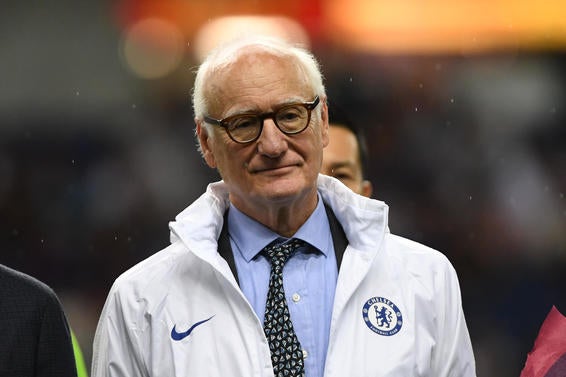
Since the sale process has effectively been treated like tender, each bid has been tasked with addressing specific areas in their business plan, covering both long- and short-term strategy. Chelsea chairman Bruce Buck has played an active role in defining the criteria, which includes a request for detailed plans to modernize Stamford Bridge.
Ahead of Thursday's deadline, we take a look at some of the key factors that will influence the Chelsea sale.
1. Speed of sale is paramount
Chelsea are currently in a state of limbo following the sanctions imposed on Abramovich. As a result, speed of sale has become an important factor.
It was particularly pressing to do the shortlisting fast and establish serious bidders. This was due to an initial fear that unless a clear roadmap for a sale was established, Chelsea could fall into administration and incur a nine-point deduction under Premier League rules.
Chelsea were also worried about paying urgent outgoings, with their $36.5 million wage bill among the highest in the Premier League. But the U.K. government has since granted the club a special license providing access to around $150 million of previously frozen funds.
The club can now function comfortably until the end of the season, Chelsea sources tell CBS Sports, and expect to have full access to forthcoming Premier League and Champions League prize money. All this allows for the sale to wrap up at a slightly slower pace than it started.
But speed is still key because if a deal isn't completed by the end of the season, it will impact Chelsea's summer spending. The government's special license ends on May 31 and the transfer window opens on June 10. If a sale isn't finalized by then and the license isn't extended or amended, Thomas Tuchel won't be able to bring in any new players.
Chelsea will be able to try and renew three key contracts, though. Cesar Azpilicueta has an automatic (and pre-agreed) extension and can choose to remain at Stamford Bridge. Antonio Rudiger and Andreas Christensen both had new terms offered to them prior to the sanctions. Neither has put pen to paper, though, and Christensen has already agreed to join Barcelona, according to CBS Sports insider Fabrizio Romano.
Chelsea contracts situation. Andreas Christensen has decided to join Barça. Rüdiger has been approached by three clubs and he will decide soon. Azpilicueta has Barça proposal on the table [until 2024]. 🔵 #CFC
— Fabrizio Romano (@FabrizioRomano) March 10, 2022
Jorginho was waiting for an answer - his deal runs out in 2023. pic.twitter.com/nwD6fd4lZa
When determining the final shortlist, the Raine Group considered how easily each suitor would be able to progress in light of the ambitious sale-completion roadmap.
Those with clear investors in place along with the ability to finance the deal with capital up front were favored. That's what made the Ricketts family bid so appealing, combined with the due diligence they carried out in 2018 during a failed attempt to buy Chelsea.
It also contributed to why Saudi Media Group (SMG) didn't make the final four. SMG tabled a competitive $3.5 billion bid -- one of the highest in the first round -- but were ruled out because there was no clear sense of where their funding came from.
We did our best, dissapointed, but we will continue to bleed #Blue #chelsea #cfc pic.twitter.com/XUOInNRMVs
— خالد وليد الخضير (@KhalidAlKhudair) March 24, 2022
There was perhaps a secondary fear the Owners' and Directors' Test might be problematic, especially in light of Newcastle's prolonged takeover by Saudi Arabia's Public Investment Fund, although senior Chelsea sources deny this was a significant factor.
SMG repeatedly emphasized they had no "direct government links," but it was thought that Almeria owner Turki Al-Sheikh, a close advisor to Crown Prince Mohamed bin Salman, backed their bid, even if at the point of rejection he wasn't listed as a prospective director or investor.
All four remaining bidding groups maintain they can complete a quick sale, but only after making the final shortlist could they formally begin due diligence. That's partly why there was a short delay on the original April 11 deadline for final offers. At least two of the four requested extra time to ask further questions, define the exact share-split within their groups and engage with fan groups.
At this point, further delays are more likely to come after the preferred bidder is chosen. Once a single bid is recommended, the chosen consortium will ultimately have more leverage on timescales and potentially wish to slow down the process to ensure there are no surprises after taking over.
Craving even more coverage of the world's game? Listen below and follow ¡Qué Golazo! A Daily CBS Soccer Podcast where we take you beyond the pitch and around the globe for commentary, previews, recaps and more.
2. Price isn't as important as usual
The sale price is not as big a deal as it would normally be in a traditional takeover. That's partly because there will be very little between any of the bids, which CBS Sports understands the range is between $4-4.2 billion.
Abramovich also can't receive any funds so there will be less quibbling over pennies (or in this case, millions). The money will instead go to victims of the war in Ukraine -- something Chelsea must clarify further so the specifics are clearer.
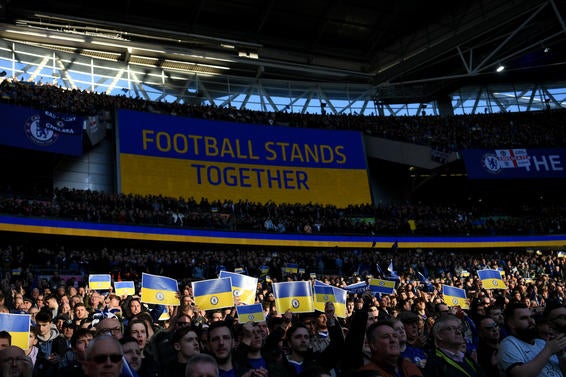
Effectively, the Chelsea sale is a bit like an auction with a minimum reserve price (believed to be $3 billion). Providing that's hit -- and it has already been after the first round -- financial negotiations won't hold things up.
The Raine Group, however, incentivized by the final price and stand to make up to $30 million for overseeing the sale.
The only complication surrounding price is the $2 billion debt "owed" back to Abramovich. The 55-year-old has said he'll write it off -- and that remains the most likely scenario, but he can't officially do this just yet due to the sanctions against him.
As a consequence, the new owners may not know with certainty that they won't have to pay back the money at a future date. That's why due diligence is so important.
Chelsea are fortunate they are comfortably within the Premier League's so-called "profit and sustainability rules," and the bulk of their debt came before these guidelines even came into force. That means they can't be fined or handed a points deduction.
The most likely solution is an agreement between the U.K. government and Abramovich to convert the debt into equity prior to a sale. This route bypasses the Premier League's profit and sustainability rules, although the funds would still qualify as part of the $117 million over three years that owners are allowed to inject into clubs.
The other option would be for the new owner to take on the debt at book value, effectively deducting it from the sale price.
"Things are made more complicated by the government sanctions, which are likely to mean Abramovich can neither write off the debt or be paid it," sports lawyer Nick De Marco told The Daily Mail. "Unless the government relaxes the sanctions, anyone who buys Chelsea isn't allowed to pay back the debt to Abramovich. But if that means that Chelsea gets an unfair advantage under the profit and sustainability rules because of government sanctions, it's still an unfair advantage.
"The fact that the debt can't be paid back is a defense Chelsea might run in any charge were forthcoming. Maybe the Premier League will say you have to pay the £1.5 billion ($2 billion) back but it's legally impossible to pay it to Abramovich so you're going to have to set up a charity or foundation or pay it that way, so that neither Abramovich nor the club get the benefit.
"An alternative scenario is any new owner inherits the $2 billion debt knowing it cannot be required to be paid back now, but without any certainly as to whether it may be later -- for example if sanctions are lifted. Such uncertainty is likely to make the sale of Chelsea far more difficult."
3. Optics will play a big part
The optics of the sale is at the forefront of senior Chelsea executives' minds, especially Marina Granovskaia. The Chelsea director -- and chief assistant to Abramovich for over a decade -- hasn't yet decided if she will stay on under new ownership, but all four suitors have expressed a desire to keep her at the club.
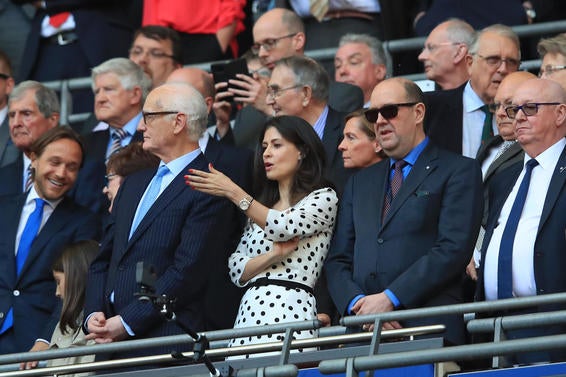
The sale is being played out very publicly and Chelsea are conscious their new owners must have the right look.
Senior sources at the club firmly deny SMG were ruled out because they didn't want a Saudi owner. They argue there were just four stronger bids with a clearer sense of funding and a more in-depth business plan. SMG certainly outlined extensive plans to modernize Stamford Bridge but failed to account for the source of their funds.
The most unpopular consortium from the four remaining is clearly the Ricketts family, whose bid has been significantly derailed by fan backlash.
Family patriarch Joe Ricketts has been accused of Islamophobia after a 2019 email calling Muslims "my enemy" was leaked. He is not part of the bid, but two of his children, Tom and Laura, have been forced to pivot their pitch to focus on diversity and inclusion as a result.
"Our bid team has met with several supporter groups to explain our vision for Chelsea Football Club," said Tom Ricketts, who is chairman of the Chicago Cubs. "In those meetings, and by letter to all groups, we have shared a set of specific commitments we will make to fans, if our bid is successful.
"We believe these are far-reaching and certainly include an absolute commitment on the part of the Ricketts family and the bid team to put diversity and inclusion at the heart of the club."
Yet many Chelsea fans continue to use the hashtag #NoToRicketts on Twitter. And there was even a small protest against the Ricketts family ahead of Chelsea's 4-1 loss to Brentford on April 2.
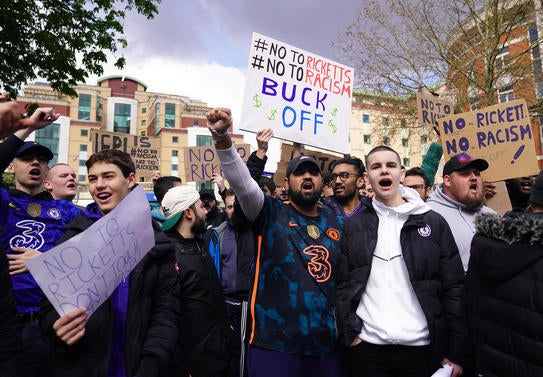
The Ricketts family plan to offer the fanbase a "golden share" and believe their phased redevelopment plan for Stamford Bridge will modernize the stadium with minimal impact on supporters. But the Chelsea Supporters' Trust (probable custodians of the golden share) released a statement confirming they still don't back the bid.
However, the Ricketts family has impressed Buck, who even facilitated a "secret" meeting with Paul Canoville. The hope was having Chelsea's first Black player on side might help with PR. But the move angered the other three suitors who believe Buck showed the Ricketts family preferential treatment. Tom Ricketts now fears rivals are fueling protests in a ploy to weaken their bid, the kind of that wouldn't be out of place in "Succession."
In order to crisis manage, the Ricketts family may hand U.S. entrepreneur Ken Griffin the majority share. Sources tell CBS Sports, he was always going to be given a "significant" stake but not necessarily be the majority shareholder. That may change over the coming days with optics so crucial.
The Ricketts family aren't the only group facing PR woes. Sir Martin Broughton, who is leading the bid backed by Philadelphia 76ers owners Harris and Blitzer, was criticized for an alleged involvement with the Burmese military during his time as chief executive officer of British American Tobacco.
And Pagliuca, who co-owns Bain Capital, has been accused of acting unlawfully to claim tax benefits in South Africa by Chelsea fan Lord Peter Hain. Pagliuca has denied this and pointed out Bain Capital is independent from Bain and Company, the management consultancy embroiled in malpractice allegations.
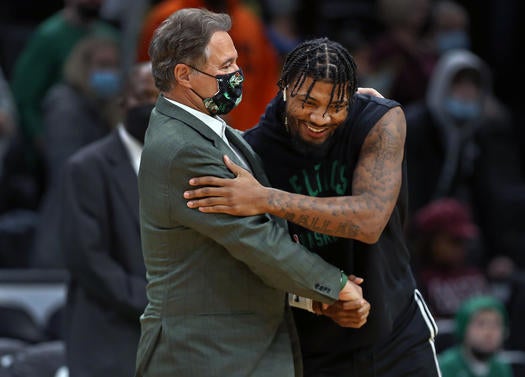
4. Premier League could slow things down
The Premier League won't decide who will own Chelsea but they do have the power to either fast-track or slow down the deal.
Both the Raine Group and Chelsea want all four consortia cleared prior to a final bid being presented to the U.K. government, but the Premier League can't officially carry out four speculative Owners' and Directors' Tests, especially not before final offers are tabled.
Instead, they are working to "soft clear" names of listed directors and thus speed up the process. Premier League chief Richard Masters has given the Raine Group no guarantees on a timeframe for this, but there is a private acceptance within the EPL that the Chelsea sale needs to be completed as soon as possible.
The Premier League face two challenges. Firstly, they don't yet know the full makeup of each consortium. That's the irony of the request made by the Raine Group: They are simultaneously trying to quickly clear names while encouraging failed suitors, or even new parties, to join final four bids.
Just 48 hours before the deadline, it was confirmed Pagliuca had added Maple Leaf Sports & Entertainment chief Larry Tanenbaum as a co-managing partner and Facebook co-founder Eduardo Saverin as an investor. The Premier League can't keep up.
The second hurdle is two of the four bidding groups can't be formally cleared due to conflicts. Pagliuca is the majority owner (55%) at Atalanta and has denied he will downsize his stake if he successfully acquires Chelsea.
"We wish to reaffirm the commitment of our family and partners to Atalanta and our partnership with the Percassi family," said Pagliuca, who only bought Atalanta in February. "We are long-term partners and we are excited to continue the success of the club."
If Pagluica ends up the majority owner for two clubs, it would present a problem should Chelsea draw Atalanta in European competition. One side would have to agree to forfeit the tie. Compared to UEFA, the Premier League will be less concerned by this but they still won't pass Pagliuca until they have written confirmation of his Atalanta plans.
Meanwhile, Harris and Blitzer currently have shares in Crystal Palace and would need to surrender these. As CBS Sports reporter James Benge pointed out, Palace won't stand in the way and there is nothing legally stopping a director "dumping" one set of shares to invest in a new club.
Harris and Blitzer have strong relationship with Raine from past deals involving the Philadelphia 76ers. Financing of their bid would not be a problem.
— James Benge (@jamesbenge) March 22, 2022
The Premier League is not looking to cause any delays, but off the back of Newcastle's takeover they also can't be seen to cut corners in the process of approval.
5. U.K. government need to be on board
The U.K. government won't directly chose or even approve Chelsea's preferred bidder. Officially, their involvement is to ensure no funds from the sale go directly to Abramovich and to approve a new license once a preferred bidder is chosen.
"The government has no role in establishing a preferred bidder for Chelsea Football Club," said a statement from the Department of Culture, Media and Sport (DCMS). "Assessments of owners and due diligence are a matter for the club and the Premier League, not the government. Our role is to consider an application for an amended license that authorizes a sale of the club when it comes forward with a preferred bidder."
However, the government is expected to also agree a deal with Abramovich to turn the $2 billion debt in equity.
And the other role they'll play is in working with Chelsea to ensure the club can "function" (defined as meeting essential outgoings only) until a sale is formally completed.
Chelsea's current special license, issued by the government, expires on May 31. The terms are pretty fluid and could yet be re-negotiated if more funds need to be unfrozen. But money won't be freed up for transfers, non-essential travel or commercial activations.
Fortunately for Chelsea, many of their 2022-23 preseason commitments have been pre-planned or pre-paid long before the sanctions came into force.
So is there a favorite?
The short answer is no. The preferred bidder must pay at least $4 billion, be able to complete a deal quickly and provide extensive plans to maintain on-field success for the Chelsea men's and women's teams as well as modernize the club off it.
On paper, the Ricketts family are best-positioned and would be favorites if their bid wasn't so unpopular. They remain unperturbed by the protests and confident they can quickly win over the fanbase. They have prioritized growing the women's team, too -- perhaps more so than any other bid -- with Laura Ricketts attending last weekend's 5-0 Women's Super League win over Reading at Kingsmeadow.
Boehly's vision is slightly more strategic and focuses on changing the Chelsea model to something closer to how Liverpool operate. That would mean a so-called "transfer committee" overseeing recruitment. He has recruited wisely and if successful would only be a minority owner. The majority shareholder in the bid is Santa Monica-based investment firm Clearlake Capital, but Boehly plans to maintain day-to-day control and has led the pitch from the start.
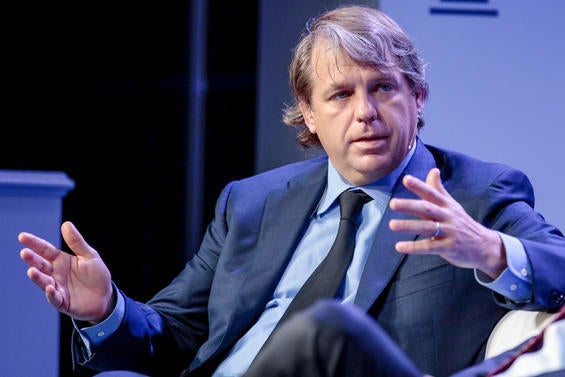
Property developer Jonathan Goldstein is key to Boehly's success since he brings invaluable expertise to develop Stamford Bridge. David Hickey, the project manager for Abramovich's abandoned redevelopment plans, and architect Janet Marie Smith are also part of the Boehly pitch. Smith worked on the $100 million renovations to Dodger Stadium which were completed last year.
The Broughton bid has gone big on implementing short-term stability and boosting global fan engagement. They group plans to knock down Stamford Bridge stand by stand and is not open to a new stadium alternative even if a viable plot of land became available.
"I remain the only person to have effected a change of ownership at a major football club in a similar situation, which I did at Liverpool 12 years ago," said Broughton, who had a short spell as Liverpool chairman in 2010 to help broker the sale to Tom Werner's Fenway Sports Group. "As a lifelong fan, I am committed to ensuring Chelsea maintains its preeminent position at the top of European football and making sure we put fans first."
Pagliuca says he'll table a "substantial and credible bid." He has strong support and bold plans to globalize the Chelsea brand. He sees the club as forging partnerships in and outside of soccer and is open to tie ups with "feeder" clubs.
But in the short term, his primary goal is strategic investment to maintain on-field success. That also includes a pledge to see Chelsea's academy create more pathways to the first team. Pagliuca's commitment to Atalanta may not help his cause but he can hardly jump ship just a month after acquiring a majority stake in the Serie A club.
Overall, one thing is clear: The Raine Group has not shortlisted four groups as a box tick or purely to pit the suitors against each other and drive up the price. Chelsea have four serious bidders who are all genuine contenders to replace Abramovich.













